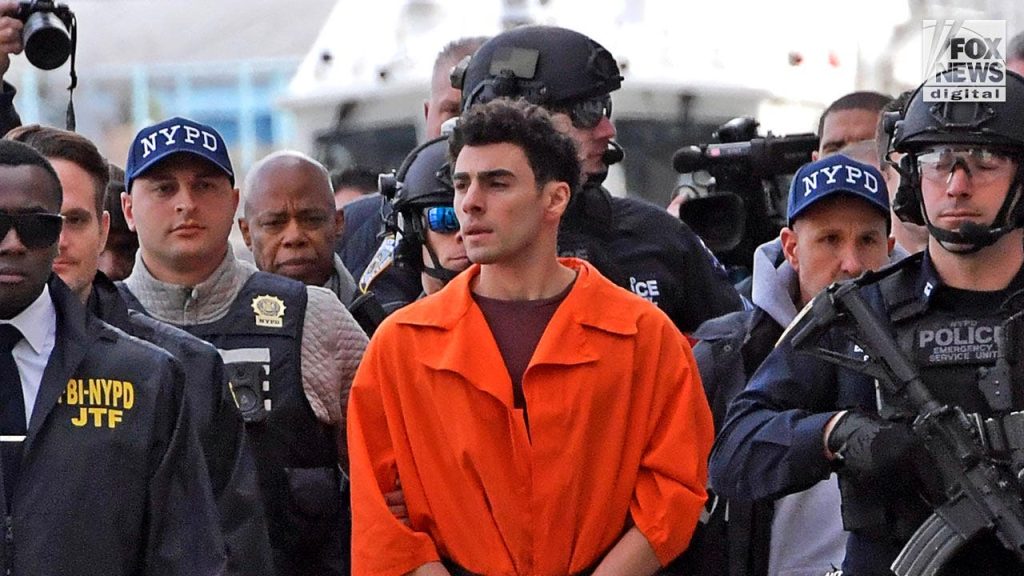The case of Luigi Mangione, the suspect accused of murdering UnitedHealthcare CEO Brian Thompson, has taken a bizarre turn on social media. Instead of condemnation, Mangione has become the subject of adulation, particularly among young women on platforms like TikTok. Videos featuring Mangione’s extradition from Pennsylvania to New York have garnered millions of views, with comments comparing his escort to scenes from “Gotham City” and likening him to infamous figures like “El Chapo.” Fan-made artwork, set to news clips and popular music, romanticizes Mangione and the crime he allegedly committed. This unexpected reaction underscores a complex interplay of psychological and societal factors that have converged in the digital age.
The romanticization of Mangione stems partly from his perceived “normality.” He is portrayed as an average young man, a former valedictorian and graduate of prestigious universities, which allows some to disassociate him from the heinous act he is accused of. This relatability, coupled with the ongoing mystery surrounding his motive, fuels public intrigue and speculation. The case has also become a platform for expressing widespread frustration with the healthcare insurance industry, with some viewing Mangione’s actions, however misguided, as a form of protest against a system perceived as flawed and unjust. This sentiment resonates particularly with those struggling to afford or access adequate healthcare, transforming Mangione into an unlikely symbol of their grievances.
Experts offer several explanations for this unusual social media phenomenon. The allure of the “bad boy” archetype and a fascination with true crime contribute to a desensitization towards violence and a tendency to romanticize criminal figures. Mangione’s perceived attractiveness also plays a role, triggering the “halo effect,” where positive attributes are ascribed based solely on physical appearance. This bias, coupled with the inherent virality of social media, creates a feedback loop where admiration for Mangione spreads rapidly, amplified by a desire for conformity and engagement, regardless of the gravity of the situation. This “groupthink” dynamic can override critical thinking and lead to the normalization, and even celebration, of disturbing behavior.
Beyond individual psychology, broader societal trends fuel the Mangione fascination. A growing anti-establishment sentiment finds expression in the perceived defiance of Mangione’s alleged actions. He is portrayed by some as an individual taking a stand against powerful corporations, resonating with a generation grappling with economic inequality and systemic frustrations. This narrative taps into a broader counter-cultural movement that questions traditional authority figures and institutions. Social media platforms become the battleground for this ideological struggle, with Mangione serving as an unwitting figurehead for a complex array of social and political grievances.
The romanticization of Mangione also reveals the profound impact of social media on public perception and the erosion of traditional boundaries between news, entertainment, and personal opinion. The instant connectivity and virality of platforms like TikTok create echo chambers where information is selectively amplified and nuanced narratives are replaced by simplified, emotionally charged content. This environment fosters a culture of instant celebrity, where even individuals accused of horrific crimes can gain a following and become the subject of adoration. The focus shifts from the victims and the severity of the crime to the perceived charisma or attractiveness of the perpetrator.
Ultimately, the public fascination with Luigi Mangione reveals a complex intersection of individual psychology, societal trends, and the transformative power of social media. It underscores the need for critical thinking in the digital age and a deeper understanding of the psychological mechanisms that drive online behavior. While the case continues to unfold within the legal system, the social media frenzy surrounding Mangione highlights the blurring lines between reality and online persona, the dangers of romanticizing violence, and the urgent need for more nuanced conversations about mental health, societal frustrations, and the responsible use of digital platforms. It serves as a cautionary tale about the potential for social media to distort public discourse and create a spectacle around tragedy.

